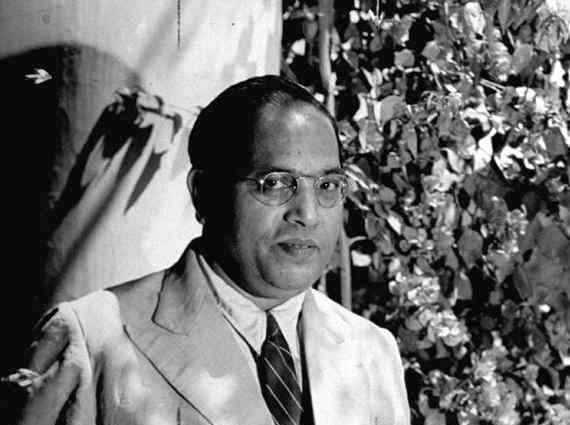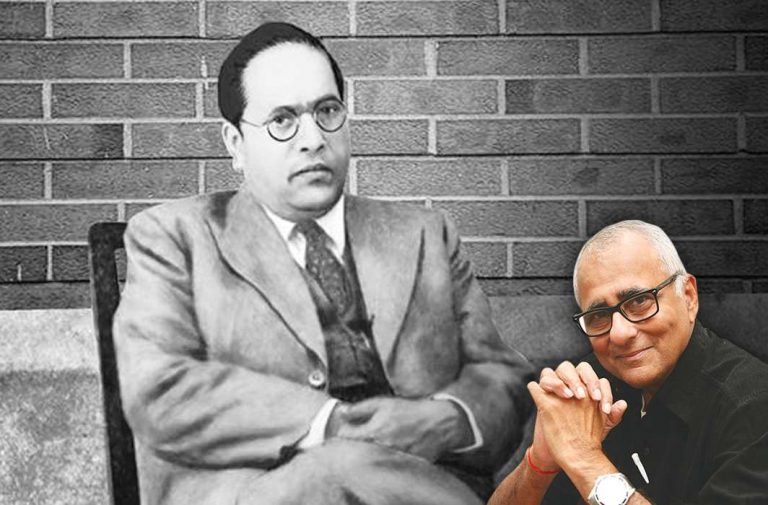
~By Inderjit Badhwar
BhimRao Ambedkar is once again the political flavour of the season. As Dalit agitations flare up across the nation, highlighting the dilution and sidestepping of laws aimed at preventing and punishing atrocities against Scheduled Castes, parties competing for the 2019 general election smell the galvanising and shifting of a vote bank. So leaders, including those from the ruling BJP, have turned into Ambedkar flag-wavers in the hope of attracting the faithful to their side.
While Dalits understand Ambedkar viscerally, because as an “untouchable” who faced horrendous caste oppression, and then rose to become the chief architect of free India’s Constitution—he is in their bones. He is their messiah as were Martin Luther King and Nelson Mandela. Their messages were the same: legal freedom and constitutionalism mean nothing as long as systematic discrimination, preserved by habit, religion or custom is not eradicated.
The withdrawal of the British from India, Ambedkar believed, did not automatically create a free nation. Rather, the exit of the British was an event which would create the conditions for real freedom. That would be the real challenge for India’s new leaders: a fresh struggle to rid this land of institutionalised prejudice, preserved as a handy tool by the British to perpetuate their Raj.
No matter how hard the BJP may try to claim Ambedkar’s legacy, there is no gainsaying that as chief draftsman of the Constitution, as the real father of Indian constitutionalism, Ambedkar’s energies were focused on eliminating the caste system which had virtually reduced one-sixth of the nation’s inhabitants to “untouchable” non-persons. He blamed Hinduism—or the perpetuation of power through the convenient use of ancient scriptures combined with the mumbo-jumbo of self-appointed seers—for this situation.
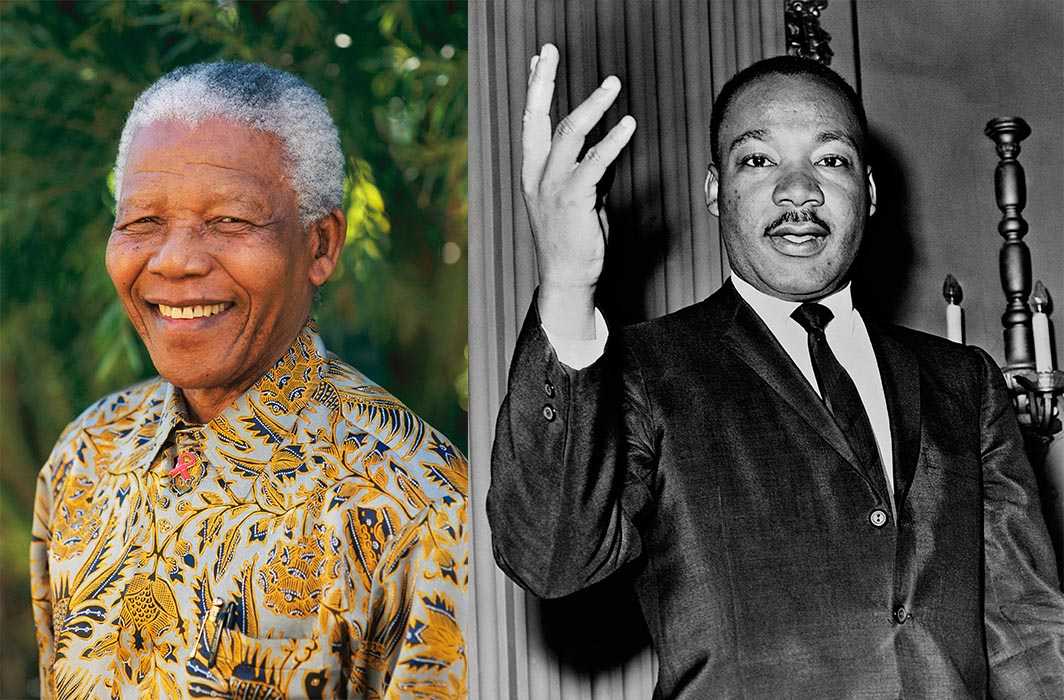
In a sense, he was like Martin Luther, Huldrych Zwingli and John Calvin who rebelled against the Roman Catholic Church and brought about the Reformation and the Protestants. In fact, Ambedkar burned the Manusmriti, the Brahmanical code of social conduct, in public, and later converted to Buddhism, much to the chagrin and anger of Vir Savarkar, one of the founding ideologues of the RSS and the Hindu Right. But Ambedkar was more than just a rebel against religion. He was an original political thinker whose thoughts have been published by Columbia University. He was India’s David Hume, John Locke, Thomas Jefferson and John Adams.
How many of our leaders who are now claiming his legacy for political gain have even read his works (except for convenient quotes passed on to them by their Googling spin doctors), or followed his oration, arguments, and scientific temper in the Constituent Assembly debates which are the equivalent of America’s Federalist Papers? There is a careful weave that knits together all his thoughts: We will fail as a Republic and will never become a true nation unless we stamp out the evil of the caste system and the misery it perpetuates by classes who claim a Divine Right to rule.
Ambedkar wrote at one point: “If [the] Hindu Raj does become a fact, it will, no doubt, be the greatest calamity for this country. No matter what the Hindus say, Hinduism is a menace to liberty, equality and fraternity. On that account it is incompatible with democracy. Hindu Raj must be prevented at any cost. But is Pakistan the true remedy against it?”
Also, for those who are stuffing their propaganda chests with Ambedkar allure items in preparation for the upcoming elections, here’s another piece of advice from the man himself: “There are many lower orders in the Hindu society whose economic, political and social needs are the same as those of the majority of the Muslims, and they would be far more ready to make a common cause with the Muslims for achieving common ends than they would with the high caste of Hindus who have denied and deprived them of ordinary human rights for centuries. To pursue such a course cannot be called an adventure. The path along that line is a well trodden path. Is it not a fact that under the Montagu-Chelmsford Reforms in most Provinces, if not in all, the Muslims, the Non-Brahmins, and the Depressed Classes united together and worked the reforms as members of one team from 1920 to 1937? Herein lay the most fruitful method of achieving communal harmony among Hindus and Muslims, and of destroying the danger of a Hindu Raj. Not partition, but the abolition of the Muslim League and the formation of a mixed party of Hindus and Muslims is the only effective way of burying the ghost of Hindu Raj.”
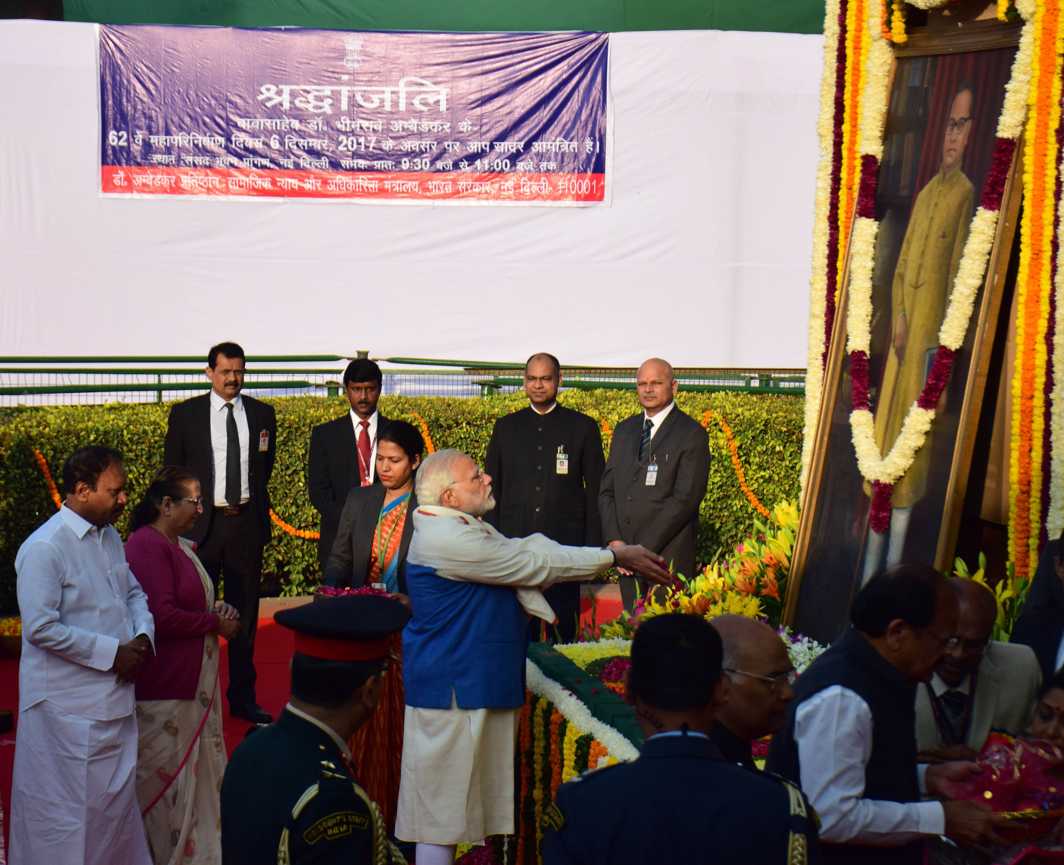
And here are his views on meat eating: “The Census Returns show that the meat of the dead cow forms the chief item of food consumed by communities which are generally classified as untouchable communities. No Hindu community, however low, will touch cow’s flesh. There is no community which is really an Untouchable community which has not something to do with the dead cow. Some eat her flesh, some remove the skin, some manufacture articles out of her skin and bones.”
Ambedkar remained deeply concerned that India would not survive as a nation or democracy unless it tackled the Scheduled Castes’/Scheduled Tribes’ oppression head-on through various measures, including reservations. Article 17 of the Constitution is brief and blunt:
“‘Untouchability’ is abolished and its practice in any form is forbidden. The enforcement of any disability arising out of ‘Untouchability’ shall be an offence punishable according to law.”
Although Ambedkar favoured extending reservations in politics and jobs and education for SCs and STs beyond the prescribed 10 years, to compensate for the rights denied to them over centuries, he was opposed to reservations being so all-encompassing that they would shrink the pool of open competition and hinder merit. He favoured, instead, affirmative action and equality of opportunity for “backward” groups. He urged that the state machinery and the courts and legal system should be proactive in discovering, rooting out, and punishing any form of discrimination as spelled out in Articles 15 and 16.
Instead of listening to today’s political propagandists trying to appropriate Ambedkar’s words, we could do him no higher honour than to listen to the great man himself.
The accompanying box contains excerpts from his last speech delivered on November 25, 1949, in the Constituent Assembly on adoption of the Constitution. It is hope mixed with a terrible foreboding that ignoring the rights granted to the downtrodden could doom the new Indian experiment.
“The evils that lie across our path”
Ambedkar knew well that unless reservation in jobs and legislatures was given to the Dalits, they would never be in a position to be equal partners in the administration of the country and would remain oppressed and slaves forever. Excerpts from his speech:
If we wish to maintain democracy not merely in form, but also in fact, what must we do? The first thing in my judgment we must do is to hold fast to constitutional methods of achieving our social and economic objectives. It means we must abandon the bloody methods of revolution. It means that we must abandon the method of civil disobedience, non-cooperation and satyagraha. When there was no way left for constitutional methods for achieving economic and social objectives, there was a great deal of justification for unconstitutional methods. But where constitutional methods are open, there can be no justification for these unconstitutional methods. These methods are nothing but the Grammar of Anarchy and the sooner they are abandoned, the better for us.
The second thing we must do is to observe the caution which John Stuart Mill has given to all who are interested in the maintenance of democracy, namely, not “to lay their liberties at the feet of even a great man, or to trust him with power which enables him to subvert their institutions.” There is nothing wrong in being grateful to great men who have rendered life-long services to the country. But there are limits to gratefulness, As has been well said by the Irish patriot Daniel O’Connell, no man can be grateful at the cost of his honour, no woman can be grateful at the cost of her chastity and no nation can be grateful at the cost of its liberty.
This caution is far more necessary in the case of India than in the case of any other country. For in India, Bhakti or what may be called the path of devotion or hero-worship, plays a part in its politics unequalled in magnitude by the part it plays in the politics of any other country in the world.
Bhakti in religion may be a road to the salvation of the soul. But in politics, Bhakti or hero-worship is a sure road to degradation and to eventual dictatorship. The third thing we must do is not to be content with mere political democracy. We must make our political democracy a social democracy as well. Political democracy cannot last unless there lies at the base of it social democracy. What does social democracy mean? It means a way of life which recognizes liberty, equality and fraternity as the principles of life. These principles of liberty, equality and fraternity are not to be treated as separate items in a trinity. They form a union of trinity in the sense that to divorce one from the other is to defeat the very purpose of democracy. Liberty cannot be divorced from equality, equality cannot be divorced from liberty. Nor can liberty and equality be divorced from fraternity. Without equality, liberty would produce the supremacy of the few over the many. [Equality without liberty would kill individual initiative.] Without fraternity, liberty would produce the supremacy of the few over the many. [Equality without liberty would kill individual initiative.] Without fraternity, liberty and equality could not become a natural course of things. It would require a constable to enforce them.
We must begin by acknowledging the fact that there is complete absence of two things in Indian Society. One of these is equality. On the social plane, we have in India a society based on the principle of graded inequality which means elevation for some and degradation for others. On the economic plane, we have a society in which there are some who have immense wealth as against many who live in abject poverty. On the 26th of January 1950, we are going to enter into a life of contradictions. In politics we will have equality and in social and economic life we will have inequality. In politics we will be recognizing the principle of one man one vote and one vote one value. In our social and economic life, we shall, by reason of our social and economic structure, continue to deny the principle of one man one value. How long shall we continue to live this life of contradictions? How long shall we continue to deny equality in our social and economic life? If we continue to deny it for long, we will do so only by putting our political democracy in peril. We must remove this contradiction at the earliest possible moment or else those who suffer from inequality will blow up the structure of political democracy which this Assembly has to laboriously build up.
The second thing we are wanting in is recognition of the principle of fraternity. What does fraternity mean? Fraternity means a sense of common brotherhood of all Indians – of Indians being one people. It is the principle which gives unity and solidarity to social life. It is a difficult thing to achieve. How difficult it is, can be realized from the story related by James Bryce in his volume on American Commonwealth about the United States of America. The story is–I propose to recount it in the words of Bryce himself that “Some years ago the American Protestant Episcopal Church was occupied at its triennial Convention in revising its liturgy. It was thought desirable to introduce among the short sentence prayers a prayer for the whole people, and an eminent New England divine proposed the words ‘O’ Lord, bless our nation’. Accepted one afternoon, on the spur of the moment, the sentence was brought up next day for reconsideration, when so many objections were raised by the laity to the word nation as importing too definite a recognition of national unity, that it was dropped, and instead there were adopted the words ‘0’ Lord, bless these United States.”
There was so little solidarity in the U.S.A. at the time when this incident occurred that the people of America did not think that they were a nation. If the people of the United States could not feel that they were a nation, how difficult it is for Indians to think that they are a nation. I remember the days when politically-minded Indians resented the expression “the people of India.” They preferred the expression the “Indian nation.” I am of the opinion that in believing that we are a nation, we are cherishing a great delusion. How can people divided into several thousands of castes be a nation?
The sooner we realize that we are not as yet a nation in the social and psychological sense of the world, the better for us. For then only we shall realize the necessity of becoming a nation and seriously think of ways and means of realising the goal. The realization of this goal is going to be very difficult—far more difficult than it has been in the United States. The United States has no caste problem. In India there are castes. The castes are anti-national. In the first place because they bring about separation in social life. They are anti-national also because they generate jealousy and antipathy between caste and caste. But we must overcome all these difficulties if we wish to become a nation in reality.
For fraternity can be a fact only when there is a nation. Without fraternity, equality and liberty will be no deeper than coats of paint. These are my reflections about the tasks that lie ahead of us. They may not be very pleasant to some. But there can be no gainsaying that political power in this country has too long been the monopoly of a few and the many are only beasts of burden, but also beasts of prey. This monopoly has not merely deprived them of their chance of betterment; it has sapped them of what may be called the significance of life.
These down-trodden classes are tired of being governed. They are impatient to govern themselves. This urge for self-realization in the down-trodden classes must not be allowed to devolve into a class struggle or class war. It would lead to a division of the House. That would indeed be a day of disaster. For, as has been well said by Abraham Lincoln, a House divided against itself cannot stand very long. Therefore the sooner room is made for the realization of their aspiration, the better for the few, the better for the country, the better for the maintenance of its independence and the better for the continuance of its democratic structure.
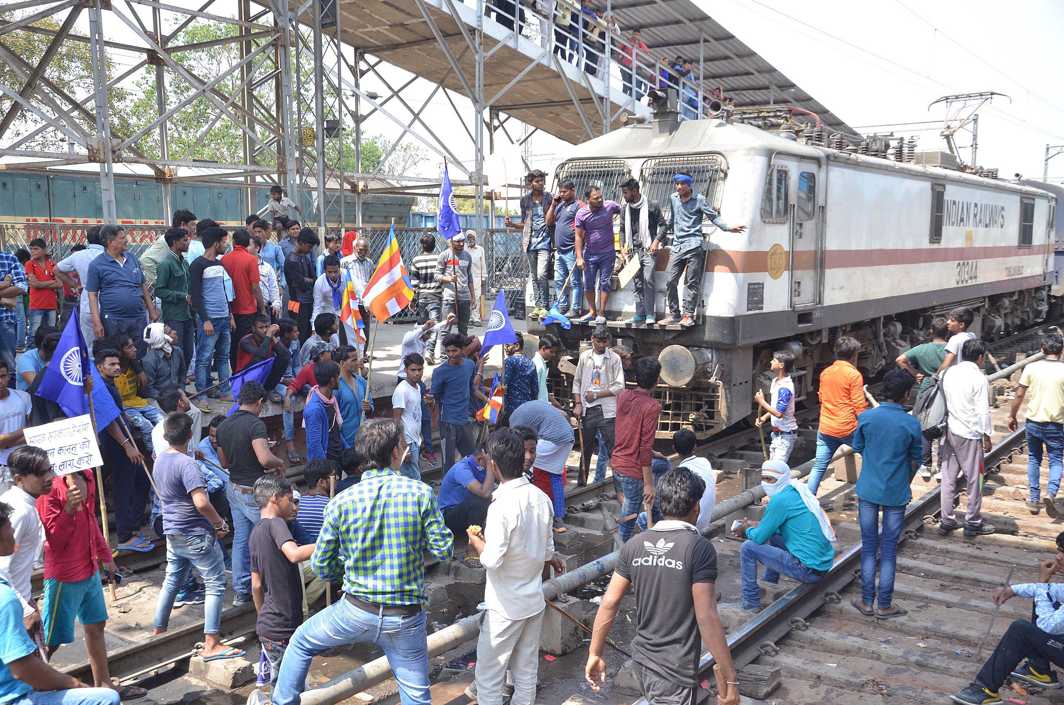
This can only be done by the establishment of equality and fraternity in all spheres of life. That is why I have laid so much stress on them. I do not wish to weary the House any further. Independence is no doubt a matter of joy. But let us not forget that this independence has thrown on us great responsibilities. By independence, we have lost the excuse of blaming the British for anything going wrong. If hereafter things go wrong, we will have nobody to blame. Except ourselves. There is great danger of things going wrong. Times are fast changing. People including our own are being moved by new ideologies. They are getting tired of Government by the people. They are prepared to have Governments for the people and are indifferent whether it is Government of the people and by the people.
If we wish to preserve the Constitution in which we have sought to en-shrine the principle of Government of the people, for the people and by the people, let us resolve not to be tardy in the recognition of the evils that lie across our path and which induce people to prefer Government for the people to Government by the people, nor to be weak in our initiative to remove them. That is the only way to serve the country. I know of no better.


